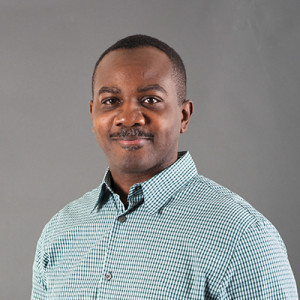Katie Taylor, OBDC’s Marketing & Development Associate interviews Noah Harris, Assistant Vice President – Veterans Program. Noah reflects the passion of OBDC in supporting veterans and their businesses. Noah holds a B.S. in Business Management and a M.A. in Organizational Management & Development with a concentration in sustainable leadership. Noah himself is a U.S. Army Veteran, with a career reflecting over 20 years of training, management, leadership, operations, and consulting. You can read more about Noah in his bio.
What do you enjoy about working with veteran-owned businesses?
As a veteran myself, I enjoy helping my fellow veterans with the often challenging and unclear aspects of getting the capital needed to start, manage, and grow small businesses. Given the tremendous sacrifices veterans make, there are no words that can adequately capture how rewarding it is for me to be able to help veterans in this way.
In what ways have you seen entrepreneurship of veterans change or seen the small business community of veterans change (or not) over the years?
Consistent with the data regarding veterans small business ownership available from the Small Business Administration, and many other sources, veterans continue to create businesses at a highly significant rate compared to non-veterans. I personally think this will continue. I strongly believe that with this increased attention toward veterans in general, we will continue to see very strong business leadership (in all of its forms) demonstrated by these veteran-owned businesses. For example, I think we’ll see veterans continuing to demonstrate innovation in user interface/user experience, integration of technology, and an emphasis on taking care of both employees and customers. These are the kinds of things that veterans are accustomed to doing.
How would you personally describe the impact created by small business owned by veterans?
Similar to other business owners, the value and impact provided by veteran small businesses owners is tremendous. The implications to our communities include jobs, quality of life, financial viability, and asset/wealth building. Not the least of these impacts is to the current and future families of the business owners, who benefit from the entrepreneurs’ hard work.
Simply stated, veterans have voluntarily and involuntarily committed to protecting the cherished, traditional values of our country and way of life. Their business ownership continues these traditions in various ways. This is another thing we can be thankful to them for doing, along with thanking the many non-veterans who support them.
I’m firmly in agreement with Reid Hoffman, LinkedIn’s Founder, and his colleague, Ben Casnocha, regarding their notion of everyone being an entrepreneur. Whether we create value through our work as employees, entrepreneurs, or intrapreneurs, what is certain is that we have an imperative to do so, and that our value is the combination of our aspirations, inspiration, and market needs.

